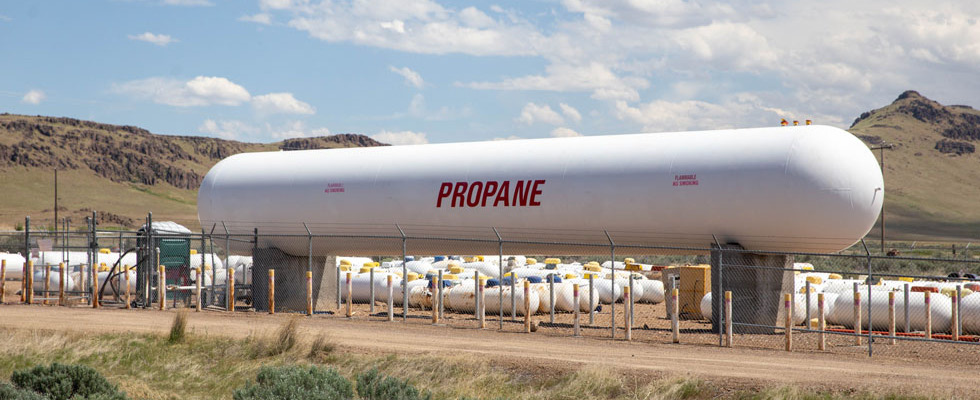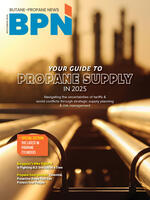
“Proper Preparation Prevents Poor Performance.” This phrase, often called the “Five Ps,” was coined by James Baker, who was secretary of state under President George H. W. Bush. Of course, fans of the British Army will use the seven Ps: “Proper Planning and Preparation Prevents P*** Poor Performance.” But since this is a professional article, we will refrain from one of those “P” words. The same principle applies to propane purchasing strategies, where proper planning and preparation can mean the difference between stability and struggle in today’s market.
Whichever “P” phrase you prefer, the theme remains the same: Plan and prepare properly. For those participating in a “P” industry — propane — these words of advice need to be heeded. But what do proper planning and preparation look like in the propane industry? Ahead are three ways you can ensure stability in your company’s propane supply.
1. Be Curious
During a pivotal episode in the first season of the Apple TV+ series “Ted Lasso,” the title character says this quote: “Be curious, not judgmental.” While Ted incorrectly attributes the quote to Walt Whitman (it appears to have first been written in an advice column for The Charlotte Observer in 1986), he did accurately show why it’s more important to be curious.
For both tenured and relatively new entrants into the propane world, being curious is vital. Be curious about why North American propane consumption is drastically dwarfed by the massive amount of volume leaving the continent via exports. Remain curious about the factors international buyers are using to decide when to purchase propane and why. Curiously ask why some practices, which were successful in decades past, may not have the same effectiveness in today’s market.
The propane landscape for both supply and demand has shifted dramatically over the last 15 years. This shift requires the need for any distributor to be open to new strategies.
2. Be Ready
While speaking at the Michigan Propane Gas Association’s summer convention in July, I provided a picture showing the average Mont Belvieu, Texas, prices by month for the last two decades. The first period we observed was from 2015 to 2024. There were two quick observations we made from this table:
- During each calendar year (January to December), the lowest and second-lowest average priced month had occurred almost equally between summer and winter months. The summer months (April to September) saw nine of the lowest or second-lowest priced months, while the winter period contained 11 of those data points.
- September 2024, which was the lowest priced average month of 2024, was a two decade-plus outlier.
After reviewing this table, we shifted to the prior decade (2005 to 2014) and made these observations:
- Eighty percent of the time, the lowest or second-lowest priced month occurred in the winter period (October to March).
- The average winter Mont Belvieu price for this decade came in at $1.13/gallon, almost 40 cents per gallon higher than the next decade.
Why does this fit into our “be ready” description? The last decade was a sharp departure from the prior decade. In addition, the most recent decade demonstrated that low prices could — and may — take place during any time of the year. This creates a need for retail distributors to be ready “in season and out of season” to price-protect their programs.
3. Be Flexible with Propane Purchasing Strategies
One of the gifts my wife and I wanted to provide our sons was the experience of travel. Besides experiencing many new places and foods, travel also gives you the distinct honor of learning to be flexible. Never does a trip go completely as planned, and if you are going to make it through a family trip (without hurting relationships), you have to be flexible.
Proper preparation involves both a mental attitude of flexibility and the creation of a portfolio that can actually be flexible. Over the years, I have often heard these phrases spoken in the middle of winter: “But this is the terminal I like to lift from.” “I only deliver on these days.” “We always deliver this number of gallons per drop.” Or, “This supplier will always take care of me.”
If you look carefully at the above statements, they all have some form of an absolute statement: “I like,” “I only,” “we always,” “will always.” By making absolute, definitive statements, you reduce your mental ability to be flexible. And by reducing that flexibility prior to winter or prior to a challenging moment, you will likely hesitate too long to take corrective action that could help your business during those difficult moments.
One action you can do to improve mental flexibility is to prepare a supply portfolio that has built-in flexibility. Outlining different potential supply terminals outside of your region or personal preference prior to winter is a first step. Step two involves identifying how you could actually lift from those facilities in a moment of crisis. Other ways to create a flexible supply portfolio involve knowing multiple transportation options. Owning a single transport and expecting to rely on that for all your winter needs could place you in a dire situation when that transport breaks down in the middle of January.
The last aspect of supply flexibility involves insurance — not your traditional business or vehicle insurance, but rather building into your supply portfolio a potentially more expensive option that has a low risk of failure. This could mean paying a premium for 5%-10% of your supply, paying a higher fee for guaranteed transportation for a certain number of loads or increasing your own storage capacity to grow your flexibility.
The domestic North American propane industry of 20-30 years ago has morphed into a massive export market that now supplies most of the world. Such a change requires a different type of planning and preparation. Being curious about what drives international buying decisions, being ready to make purchasing decisions at any time and being flexible in your supply plans are necessary decisions to make sure you have properly prepared for the oncoming winters. There is never a way to plan or mitigate every possible challenge, but you can certainly prepare yourself for the best methods to tackle what challenges may come your way.


